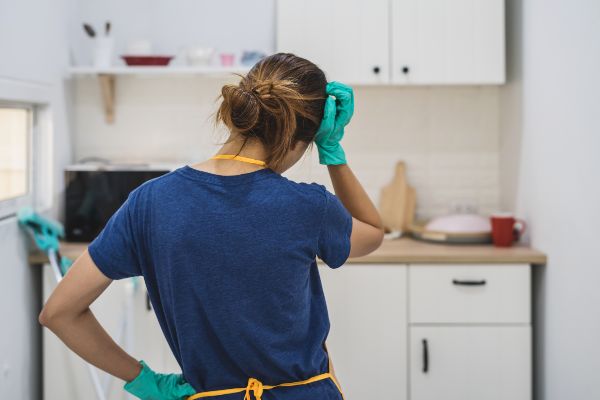Rodent Learning Center
Rodent Treatment
1. Best Way to Get Rid of Mice
Mice are notorious pests in Illinois due to their small size and ability to squeeze through tiny holes, making them difficult to get rid of. While there are several DIY methods to remove mice, their effectiveness varies depending on the severity of the infestation and the location of the entry points. For instance, essential oils or hot pepper solutions can deter mice from entering certain areas, and covering potential entry points can serve as a temporary barrier. For the rodents inside, it’s essential to wear gloves when handling dead mice from snap traps and be mindful of the chemicals used in other mouse traps as they can be hazardous.
Apart from being challenging to treat, mice can pose health risks to humans and pets as they carry potentially fatal diseases. Therefore, it’s critical to avoid handling mice with bare hands and opt for non-toxic treatments whenever possible. It’s safer to leave mouse and rodent control to a team of experts who can assess the infestation and provide tailored solutions to eradicate the problem.
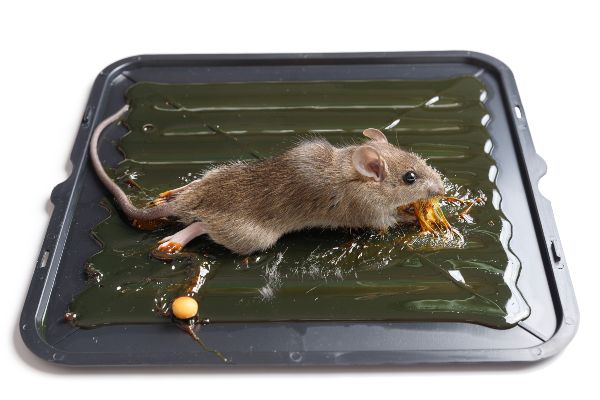
2. How to Get Rid of Burrowing Rats in Illinois
In Illinois, rodents become more desperate to enter homes during the cold season. Homeowners can deter rodents by keeping the home free of clutter, regularly taking out the trash, cleaning pipes and drains, and setting traps or baits. Rodents seek warmth, shelter, and a steady source of food, which can all be found in homes. Thus, removing easy access to these factors is crucial for effective rodent prevention.
Rats are not only damaging but also pose potential health hazards by spreading dangerous diseases. Homemade rat traps such as the bucket method can be effective and safer than poison-based traps that may harm pets or family members. To use the bucket method, coat the sides of a bucket with peanut butter, place it near the problem area with a ramp leading to the rim, and wait for the rat to fall in and become trapped. Homeowners can then choose to release the rat or fill the bucket with water beforehand and let the rat drown.
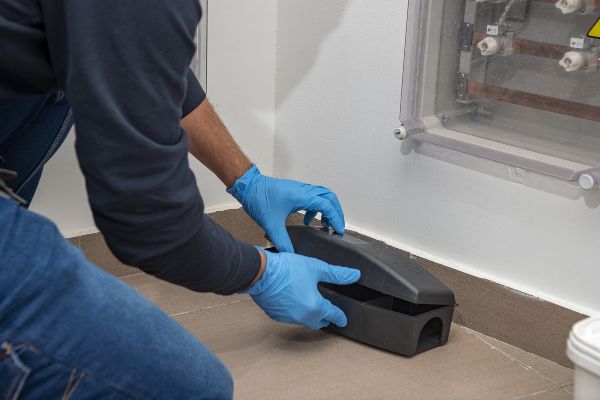
3. Do DIY Mouse Traps Work?
While the traditional snap trap may be the most commonly used mouse trap, there are many other options available for rodent control. DIY mouse traps can be effective, but they must be constructed and used correctly to work. One popular alternative to the snap trap is the ramp and bucket method, listed in the above section, but methods like that won’t necessarily take care of the nesting site and any rodents that may be hiding there.
Whatever you do, it’s important to avoid using poison-based mouse traps on your own. Used incorrectly, they can be harmful not only to rats and mice but also to humans and pets. For those living with children or animals, it’s especially important to avoid these traps and rely on a professional rodent control technician for safe and effective rodent control.

4. Are Rat Bait Stations Safe?
Bait stations are a popular tool for removing rodents from homes and businesses in Illinois. They work by distributing a toxic bait to rats in the area, which eventually results in a colony of dead and dying rodents. However, the use of bait stations can be dangerous without the help of a professional technician. Pets and humans, particularly children, are also at risk of accidental poisoning from the toxic chemicals.
To be effective, bait stations must be placed in areas where rats are likely to find them. It is also essential to store the stations in a place where smaller animals and children cannot access them. While bait stations can be a successful way of eliminating rats and mice, it is crucial to handle them with caution and seek professional help to ensure their safe and effective use.
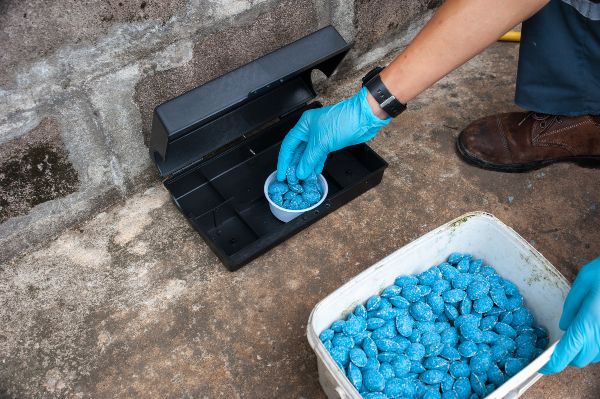
5. Rodent Baits vs. Rodent Traps
When it comes to rodent control in Illinois homes, two popular methods are rodent baits and snap traps. Snap traps use a simple mechanism and bait to kill rodents, while rodent baits lure them with poison disguised as food. Choosing between the two methods depends on factors such as:
- The source of the infestation
- Possible toxicity exposure
- Access to professional help.
Snap traps are best for known infestation points, while rodent baits work well in less accessible areas, although they take longer to affect the population and may be harder to track.
Ultimately, the choice between rodent baits and snap traps depends on personal preference and the circumstances of the infestation. While both methods have their pros and cons, there are other options available for rodent control, such as ultrasonic repellents or enlisting the help of a professional exterminator.
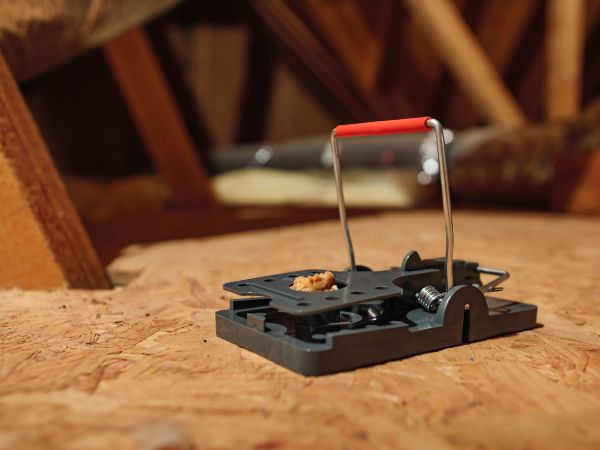
6. Rodent Dropping Cleanup in Illinois
Cleaning up after rodents can be a daunting task that requires extra caution to avoid exposure to harmful pathogens. The mess left behind by rodents may include:
- Droppings
- Urine patches
- Nests
- Dead rodents.
To clean up these messes safely, it is important to wear protective gloves and use disinfecting agents such as a mixture of bleach and water. It is not advisable to sweep or vacuum rodent droppings as this may release infected particles into the air.
When cleaning up rodent droppings and urine, spray the affected area with the bleach and water mixture, let it soak for five minutes, wipe with a paper towel, and dispose of it in a sealed trash bag. Disinfect the surrounding area to ensure no particles are left behind. When disposing of dead rodents or their nests, use the same strategy as with rodent droppings and urine. Wash your hands thoroughly after handling rodents or their excrement to avoid contamination.
